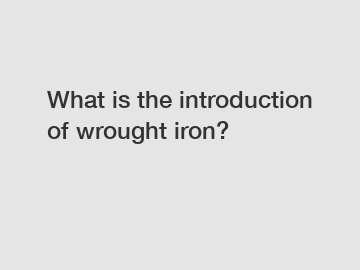The Ultimate Guide to Granite Drill Bits: Answering Your Top FAQs
The Ultimate Guide to Granite Drill Bits: Answering Your Top FAQs.
Are you looking to tackle a granite drilling project but feel overwhelmed by the numerous options available in the market? We understand how confusing it can be to choose the right drill bit for this incredibly tough material. But fear not! In this comprehensive guide, we will answer some of your most frequently asked questions about granite drill bits. By the end, you'll be equipped with all the knowledge you need to confidently pick the perfect tool for your granite drilling needs.
1. What makes granite such a challenging material to drill?

Granite is a natural stone formed from volcanic activity, granting it remarkable durability and strength. However, this very resilience can pose significant challenges when drilling into it. Granite's hardness can quickly wear down drill bits not specifically designed for the task, leading to poor drilling performance, reduced longevity, and potential damage to your workpiece.
2. What types of drill bits are suitable for drilling granite?
When it comes to drilling granite, using the right drill bit is crucial. There are a few types to choose from, each with its unique features and benefits. Here are the most commonly preferred options for granite drilling:
a) Diamond Drill Bits: Known for their exceptional hardness, diamond drill bits are specifically engineered to handle tough materials like granite. They use real or artificial diamonds embedded in their tips to provide outstanding cutting power and longevity.
b) Carbide Drill Bits: Carbide drill bits are an excellent alternative to diamond bits. They are made of tungsten carbide, a strong and durable material that can effectively penetrate granite. While not as hard as diamond, carbide bits offer good performance at a more affordable price point.
3. How do I select the right drill bit size?
Selecting the right drill bit size is crucial for achieving clean and accurate holes in granite. The size you choose will depend on your specific project requirements. As a general rule, start with a smaller drill bit for pilot holes and gradually increase the size until you reach your desired hole diameter. This gradual approach minimizes the risk of chipping or cracking the granite.
4. How can I prevent my drill bit from overheating?
Overheating is a common issue when drilling into tough materials like granite. To prevent this, we recommend using water or a coolant spray while drilling. This cooling agent helps reduce friction and dissipate the heat generated during the drilling process, ensuring your drill bit remains sharp and effective.
Explore more:Unveiling the Power of OEM Plastic Injection Mold Tooling
Which is the Best: Hydraulic Tool Holder or Collet for Optimal B2B Tooling Performance?
Iron Fence Accessories: Must-Have Additions for Enhanced Security & Style!
The Ultimate Guide to Sintered Glass Filters
Enhancing Space or Hindering Privacy? Metal Room Dividers: When to Use and When to Avoid?
Which Factors Determine the Longevity of a Screw Pump Rotor and Stator?
Which innovative projects can be realized with a 6mm Carbide End Mill?
5. Do I need any special techniques or precautions when drilling granite?
When drilling granite, it's important to follow some essential guidelines to ensure success:
a) Start with a slow drilling speed and gradually increase as necessary to avoid unnecessary stress on the drill bit.
b) Apply gentle, consistent pressure to allow the bit to cut smoothly through the granite. Excessive force can lead to bit breakage or damage to your workpiece.
c) Use a drilling guide or template to ensure accuracy and prevent slippage.
6. How can I extend the lifespan of my granite drill bits?
To maximize the lifespan of your granite drill bits, follow these tips:
a) Choose high-quality drill bits from reputable manufacturers to ensure durability and performance.
b) Use proper drilling techniques and avoid unnecessary stress on the drill bits.
c) Regularly clean and lubricate your drill bits to prevent debris build-up and maintain optimum sharpness.
d) Store your drill bits in a dry, secure place to prevent damage and maintain their cutting edges.
In conclusion, drilling into granite doesn't have to be a daunting task. By selecting the right drill bit, following proper techniques, and taking necessary precautions, you'll be able to achieve clean, precise holes in this tough material. Remember to choose high-quality drill bits, such as diamond or carbide options, that are specifically designed for granite drilling. With these tips in mind, you're well on your way to successfully completing your granite drilling projects with confidence and ease. Happy drilling!
For more stone floor polishing pads, hg hyper grinder, cps diamond toolsinformation, please contact us. We will provide professional answers.
Explore more:What are the 5 requirements of the safety valve?
What is a Sockolet used for?
Why is rapid tooling important in manufacturing?
What are the characteristics of a good work holding device?
Transforming Backyards: Stylish Steel Fence Ornaments
How do you make a dragonfly?
What is the use of rotor in DC machine?










